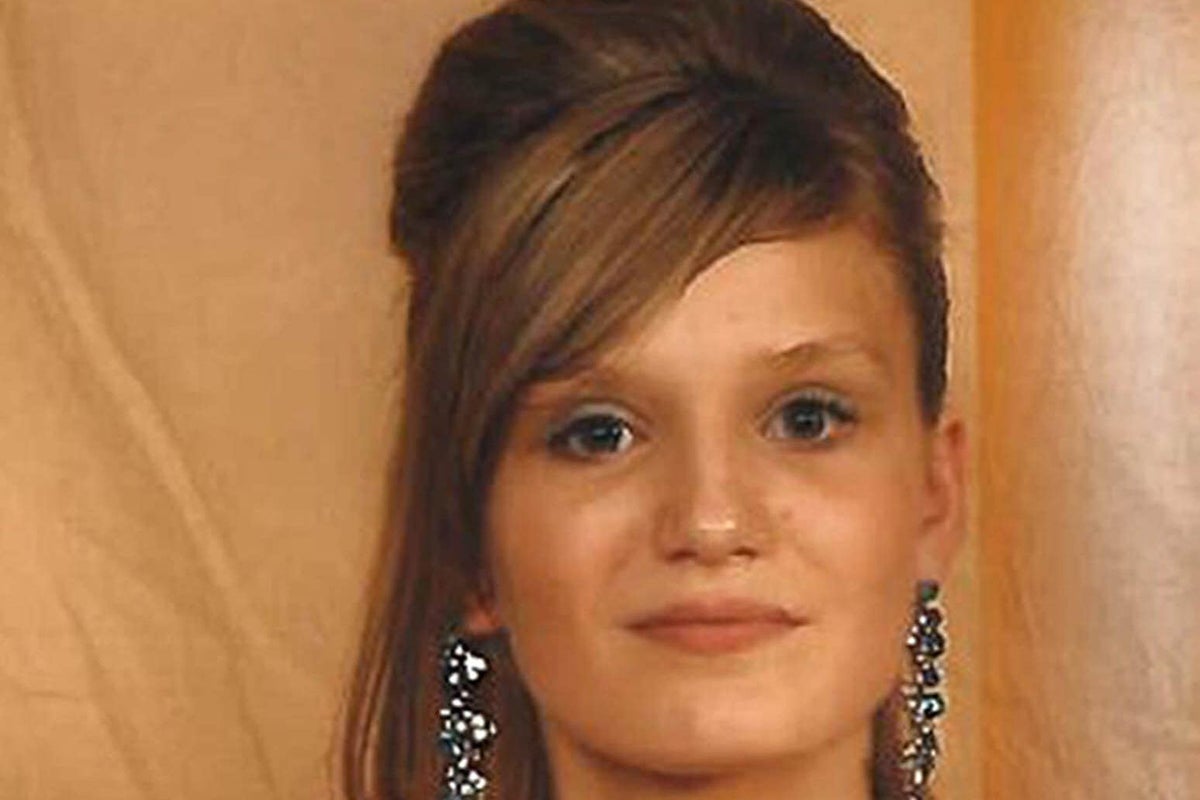
A teenager who was murdered by a fellow care home resident who was fascinated by necrophilia had written a letter before her death detailing how “social services had destroyed my life”, an inquest heard.
Melissa Mathieson, 18, was strangled by Jason Conroy at Alexandra House, which provided residential care for adults with autism and Asperger’s syndrome, in Bristol, in October 2014.
Conroy, now aged 28, was jailed for life for the sexually motivated killing.
Avon Coroner’s Court heard how he once tried to strangle a teacher so he could abuse her and had also attempted to kill his mother.
The inquest, which was resuming into Miss Mathieson’s death more than 10 years after her murder, was attended by her father, James.
In the letter titled Social Services Have Destroyed My Life, Miss Mathieson wrote: “This was a terrible time for me, and I felt like I was dragged away from my home and everything I knew and being completely disrupted.
“They never took into consideration my age or the distance from my family. I was still a child, just very confused.”
The letter was read to the court as part of the written evidence of Miss Mathieson’s mother, Karen, who died from cancer a year after her daughter’s death.
Mrs Mathieson said “the system” had failed her daughter and had also failed Conroy.
“We know better than most people the difficulties that autism can present, for our feelings about Jason Conroy are not based on ignorance of his condition,” she said.
“What he has done is awful, we cannot comprehend it, so many people cannot comprehend it.
“Melissa did not have a nasty bone in her body. She was a gentle, kind and lovely girl.
“Not only has Jason Conroy ended Melissa’s life, but he has also ended his own. He should have had his problems addressed a long time ago.
“The system has failed him, and it has failed Melissa.
“We question the professionals who have had the responsibility for his care, as much as we do of those who had a responsibility for Melissa’s care.
“When we found out about his previous behaviour, it just compounded our anger at the system and its failings.
“There were warning signs, these were missed and now nothing will bring Melissa back.
“We want people to sit up, think and take responsibility for their actions when dealing with people with learning disabilities.
“We feel that it is only now, since the horrific circumstances of Melissa’s death, that we have been treated with dignity and respect from professionals that we have come into contact with.”
The inquest heard Miss Mathieson, who was from Windsor, Berkshire, had been sent to Alexandra House by social services when she turned 18, having spent the previous two years in a series of different placements.
Mrs Mathieson said her daughter was immature for her age and “lived in a bit of a fantasy world” and had been influenced by the Tracy Beaker stories about a child who lived in a children’s home.
“This was because she didn’t have her own group of friends, didn’t get invited to parties and that sort of thing,” she said.
“Her behaviour was played out to us, we would put our foot down so because she did not have anything to compare it to – she thought we were being hard on her.
“This meant that there were times that Melissa would make allegations and social services would get involved.
“As parents of two autistic children, we did not find Melissa’s behaviour more challenging as she got older.
“The problem for us was the involvement (of) social services … who we just found to be impossible.
“They did not seem to realise that Melissa loved the attention she got from people in authority and would often play them to get what she wanted.
“However, from the age of about 16, we felt that we no longer had a voice.
“Social services were putting ideas in her head about living away from home, and ultimately, it was this that put Melissa in danger.”
Mrs Mathieson said that aged 16, her daughter suffered from severe anxiety which left her requiring hospital treatment.
“This was a real turning point from our perspective, as Melissa was pumped full of drugs, and by the next morning, when we saw her, she was psychotic,” she said.
“Melissa was never the same girl after this psychosis.
“She was in an environment that she was able to learn from other patients all about the things we have tried to protect her against.
“Then when she came home, she would have further outbursts. It was a truly horrible year.
“I used to go to bed and feel like I was running down a hill with a big rock chasing behind me. I was constantly trying to stay ahead.
“James felt like he was on a rollercoaster he couldn’t get off. We all had these issues, not caused by Melissa, but by the social services management.”
Mrs Mathieson added: “By the time Melissa was turning 18, the seed had been firmly set that her problems were at home and that she would be better if she took that independent living placement.
“We tried to argue that while she was 18 and had some degree of capacity, the fact that she had a learning disability and was emotionally immature, she should not have been allowed to make those decisions.
“We were told that Melissa was going to Alexandra House to get her behaviour back on track, but actually she got killed by the very things that we always tried to teach her to be wary of.”
The inquest continues.
